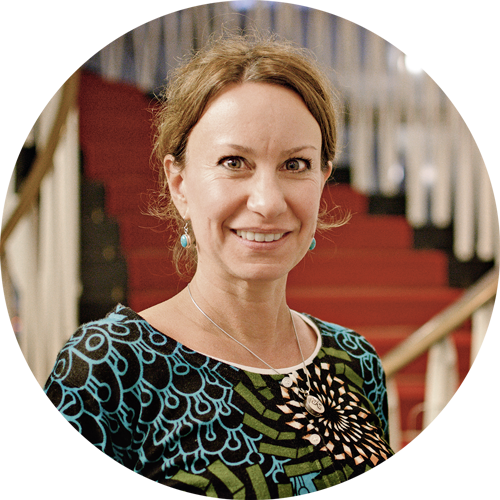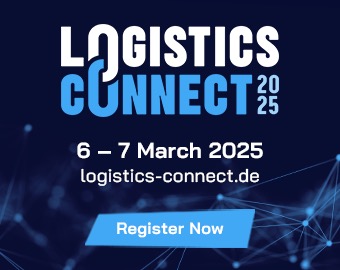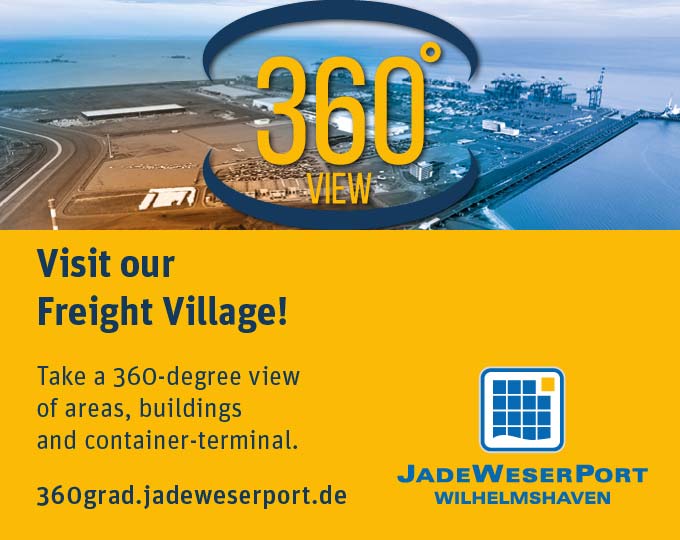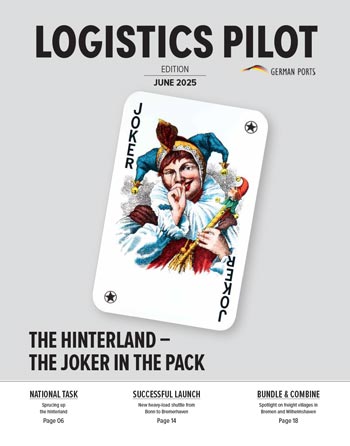With more than 50 countries and around 1.3 billion people, Africa is the second largest continent in the world. This not only entails active diversity, but also a multitude of different opportunities and risks. To put it differently: it is torn between being a booming region and corruption, and between enthusiasm and disillusionment.
Photos: Maersk, Shutterstock/S.Gvozd, BLG Logistics, Land Niedersachsen/Lara Doelle, Volkswagen AG, Maersk Line
Southern Africa, and in particular the Republic of South Africa, accounts for the most important trading partners in Africa: suppliers to the automotive industry, logistics providers, or machine and plant manufacturers for companies in Lower Saxony and Bremen. Trade with the rainbow nation alone accounts on average for one third of Bremen’s total foreign trade with Africa. The Bremen Chamber of Commerce reports that in 2018 approximately 1.14 billion euros worth of goods were traded with South Africa via Bremen’s ports. Exports are predominant with a volume of around 994 million euros. In contrast, goods imported from South Africa via Bremen’s ports were ‘only’ 141 million euros. South Africa’s importance for Lower Saxony is similar, except that here the import figures are higher than the export figures. The Chamber of Commerce and Industry (IHK) of Lower Saxony and the Federal Statistical Office (Destatis) show a total volume of more than 1.6 billion euros for the federal state when it comes to imports and exports with the Republic of South Africa in 2018. Of this amount, 592 million euro is attributable to exports and 1.07 billion euro to the import of goods into Lower Saxony. And this in turn means that 35 per cent of Lower Saxony’s exports to Africa go to South Africa, while the figure for imports is as high as 51 per cent. Looking at the statistics for the whole of Germany, it is mainly motor vehicles and motor vehicle parts, machinery, and chemical products that are transported to South Africa. The goods that go the other way around are mainly motor vehicles and vehicle parts, metals, ores, and machinery.
South Africa as a gateway and hub
“The pronounced dominance of the Republic of South Africa in these figures does, however, provide a skewed impression of the actual flow of goods within Southern Africa”, says Tilman Brunner, spokesman for International Leadership at the Chamber of Commerce and Industry of Lower Saxony. “Many goods that land in neighbouring countries via middlemen are transacted via the Republic of South Africa, and therefore only feature in the statistics of this country. As far as logistics and sales are concerned, South Africa definitely acts as a hub for its neighbours.”
Efficient logistics chains are essential for BLG LOGISTICS in South Africa. Its subsidiary BLG Logistics of South Africa focuses its activities on finished vehicles as well as project and contract logistics.
South Africa also plays a key role on its continent for BLG LOGISTICS. The company is represented there at six locations via its subsidiary BLG Logistics of South Africa. The logistics service provider’s headquarters are situated in Port Elizabeth, with further branches located in the country’s main centres in Cape Town, Durban, Pretoria, East London and Johannesburg. The company’s activities focus on ready-made vehicle logistics. “South Africa is often described as the gateway to Africa. Numerous original equipment manufacturers and suppliers to the automotive industry, such as Nissan, BMW, Mercedes, Toyota, Ford, Volkswagen and Isuzu, are based in the country,” explains Kai Olschner, Managing Director of BLG Logistics Group and responsible for the overseas division. “It is a lovely country, and it is fun to work there. South Africa has a relatively good infrastructure, a young population and plenty of space to offer,” Olschner continues. At the same time, he also sees a number of challenges that companies have to face if they want to operate successfully in the region. These challenges include ever-increasing corruption, high crime and political instability. In Olschner’s opinion, current economic policy and the deteriorating energy supply are also factors that could cause uncertainty among potential investors.
Decline in productivity at the ports
Maersk Line, the world’s largest container shipping company, sees South Africa in a privileged position – especially because of its strong manufacturing industry and its rich natural resources. “South Africa represents a more mature and stable market than the other regions in Africa. What’s more, the country has a large number of free trade agreements, in particular with the EU and the USA, which help to boost the economy,” says Andres Felipe Rodriguez, Trade Manager Europe, Middle East and South Africa at Maersk, in outlining the country’s economic appeal from his perspective. However, like BLG LOGISTICS, he also still considers the political landscape in South Africa and many other countries on the continent to be volatile. “Factors such as high unemployment, social inequality and poverty continue to be a cause for concern,” Rodriguez adds. He identifies the greatest challenges as related to port operations and shore-based infrastructure throughout Southern Africa. “If one looks at recent years, a steady decline in productivity in South Africa’s various ports can be observed, which is mainly due to a lack of investments to replace used equipment. A similar situation exists in the shore-based infrastructure in South Africa. Here, the lack of sufficient cold storage capacity is also a cause for complaint,” Rodriguez criticises. Consequently, Maersk intends to further optimise its logistics chains in Southern Africa in the coming years through direct investments or acquisitions.
VW: In anticipation of AfCFTA
“For us, South Africa is the most important market on the African continent,” Andile Dlamini, Head of Group Communications at Volkswagen Africa, points out. He believes that the country has long since had “a strong logistical infrastructure by road, rail and sea.” He sees the introduction of the African Continental Free Trade Area (AfCFTA), a free trade zone that was contractually sealed by 22 African states in May 2019, as an important step in the direction of the future. The implementation of AfCFTA is planned for this year. He is convinced that “AfCFTA will not only facilitate the movement of goods on the African continent, but will also ensure that further synergies between countries are identified and developed in terms of logistics.”
Most read
Logistics Pilot
The current print edition - request it now free of charge.
Volkswagen Group South Africa is one of the largest employers in the Cape, and from here, vehicles are sent all over the world.
Volkswagen Group South Africa is a wholly-owned subsidiary of the Volkswagen Group in Germany and is based in Uitenhage, an industrial city approximately 35 kilometres from Port Elizabeth. VW produced 97,000 engines for various models and 162,000 units of the VW Polo on the company premises there last year with the help of around 4,000 employees. “We make use of Port Elizabeth’s port for the export of our Polo models, which are destined for both the right and left-hand drive markets, so also for Great Britain, Japan and Australia, while the port of Ngqura is used to pick up containers with the necessary production and assembly parts,” Dlamini goes on to explain. In its own words, this makes Volkswagen Group South Africa not only the largest employer, but also the largest contributor of levies and taxes in the Eastern Cape province.
A future market or wishful thinking?
When talking to experts about the African continent, the term “future market” is often encountered. “In my opinion, however, there is often a lot of wishful thinking behind this,” says Fausi Najjar, Southern Africa Director at the business development agency Germany Trade and Invest (GTAI), which is associated with the Federal Ministry of Economic Affairs and Energy (BMWi). He clarifies his position as follows: “A continent with such a wealth of resources, opportunities to expand agriculture and a rapidly growing population always has great potential for the future. But it is also a matter of implementation. As important as international assistance may be, only the African governments and societies themselves can achieve widespread growth – and that is often the problem.” At the same time, Najjar warns against drawing immediate conclusions about an economic upswing for the entire continent based on developments in a few countries or individual entrepreneurial success stories: “Especially South Africa as the most industrialised country in Africa, but also Namibia and Botswana possess a good business climate. On the other hand, Mozambique, Zimbabwe and Angola are lagging behind internationally in this regard. Whether the expected boom in Mozambique, thanks to large gas reserves, can be translated into widespread growth, is far from clear.” Najjar believes that a lot of time is often needed to develop markets in Africa, and that it is often more difficult for companies to establish themselves as market players than it is to withstand the subsequent competitive pressure. Specifically with regard to ports in South Africa, he takes a similar stance to that of Maersk: “The management and infrastructure there have deteriorated dramatically. Corruption, strikes and old equipment play a big role in this situation. There are, however, efforts to reform and modernise. But they are not implemented very quickly.” As a result, the ports of Walvis Bay (Namibia) and Maputo (Mozambique) and, to a lesser extent, Beira (Mozambique) and Lobito (Angola) are increasingly competing with Durban and the other South African ports.
More transparency, less corruption
The will to foster economic relations with African countries also shaped the G20 summit “Compact with Africa”, for which numerous African heads of state and government came to the chancellery in Berlin in November 2019. The objective of the partnership, created in 2017 under the German G20 presidency, is to improve the conditions for private investment and employment opportunities in Africa together with the local countries. During the meeting, German Chancellor Angela Merkel called on the African partners from twelve countries to be more transparent. “We believe that more transparency can also attract more investors to these countries,” she said. Martin Wansleben, managing director of the Association of German Chambers of Industry and Commerce (DIHK), also added: “Very often, high bureaucratic hurdles, corruption or security issues prevent German companies from daring to take the first step into Africa at all.” To date, the states of Ethiopia, Egypt, Benin, Burkina Faso, Côte d’Ivoire, Ghana, Guinea, Morocco, Rwanda, Senegal, Togo and Tunisia have participated in the Compact with Africa Partnership. Thus, a representative from Southern Africa is not yet on board. (bre)
“South Africa is a diversified, partly ultra-modern national economy.”
Interview with Inger Steffen, representative of the State of Lower Saxony in the Eastern Cape Province
Where would you start tackling the issues that prevent more companies from Lower Saxony from investing in Africa or South Africa? Inger Steffen: To create more investment incentives, it is necessary to expand government investment promotion even further, for example by means of export guarantees – the so-called Hermes covers. There are also many advisory services, for example from the Southern Africa-German Chamber of Commerce and Industry, GTAI and KfW, the German-African Business Association and the Africa Business Network, but also concrete initiatives by the German government such as “Grow Africa” or “Pro! Africa”, to name just a few. Do you think Southern Africa is on the path to becoming a much-cited future market? Steffen: South Africa is already an important market for German companies, because it is a diversified, partly ultra-modern national economy, which differs significantly from other countries in Southern Africa in terms of its infrastructure. Trade relations are excellent. With a trading volume of 18.3 billion euros, 2019 was the third record year in a row. On the whole, South Africa is very interesting for German companies and continues to be a steppingstone to the rest of Southern Africa. Intra-African trade should gain further momentum as other African countries catch up economically and as a result of agreements such as the African Continental Free Trade Agreement, which is currently being negotiated. In what ways is the region well-positioned, and where do you see room for improvement? Steffen: Thanks to its wealth of raw materials and self-sufficient food supply, South Africa’s foreign trade is relatively robust overall. Traditionally strong sectors include the automotive industry, financial services, agriculture and medical technology. The latter in particular also has its main base there for the rest of the sub-Saharan market. However, with years of corruption and mismanagement, South Africa’s investment backlog poses a threat to its advantage in infrastructure and to the urgently needed economic growth. Under President Cyril Ramaphosa, the new government has set up a number of investment programmes to attract foreign investment into the country. An interesting opportunity for German companies could also arise in the field of renewable energies. Through the recently adopted structural programme for the expansion of the electricity supply, the “Integrated Resource Plan 2030”, the share of renewable energies in the energy mix is to be increased from 8 to 30 per cent by 2030. Criticism came from the development organisation ONE at the G20 conference “Compact with Africa”, in Berlin last November. Their Germany director, Stephan Exo-Kreischer, said that good governance in Africa should also include constitutional and human rights issues. Education, health and social security must also be promoted in order to reduce poverty. Do you share this view? Steffen: Yes. The streams of refugees fleeing from Africa bear witness to this: Positive development in Africa is important for Europe. To ensure that the population in Africa really benefits from economic development, it is vital to promote the rule of law and basic human rights. South Africa is perhaps a case in point for many other African countries in this regard; unemployment is frighteningly high – coupled with a shortage of skilled workers due to the inadequate public education system. A secure, stable environment also benefits businesses, because ultimately, they do not have to invest so much in security measures to safeguard against crime.

Maersk provides its customers with a strong network into the hinterland – either by truck or by train. However, similar to the GTAI, the world’s largest container shipping company believes that the infrastructure in South African ports has deteriorated.
Double the support for Namibia
Further training is an integral part of bremenports’ third-party business. For instance, in 2019 the port management company carried out an analysis on behalf of the German Association for International Cooperation (GIZ) which is intended to help Namibia’s state-owned port operator, Namport, to implement the national logistics master plan in two respects. For one thing, the goal is to determine the organisational areas for Walvis Bay, the country’s main port, which require further development in order to successfully implement the master plan. Here the emphasis is on optimising the hinterland corridors to Namibia’s neighbouring countries. The explicit political will in this context is to develop the road and rail infrastructure and improve cooperation between national customs authorities. Individual projects also include the introduction of IT-supported import and transit processing. Simultaneously, bremenport is helping Namport with its human resources development. For this purpose, the Bremen port management association firstly determined which competences and staff numbers are required for the development of the general cargo and container traffic, the infrastructure and the maintenance of the equipment there. On top of this, there were already additional training formats in Bremen and Bremerhaven, but also at Namport on site. bremenports also offers a tailor-made package of personnel development measures, ranging from the identification of training needs and the structuring of curricula to the implementation of workshops and training courses. “To allow us to support our customers – not only in Africa – efficiently, we are working together with leading colleges and universities on this project. Naturally, the customer also benefits from our extensive experience as a port company in Bremen and Bremerhaven,” says Dr Lars Stemmler, Head of International Projects at bremenports.







